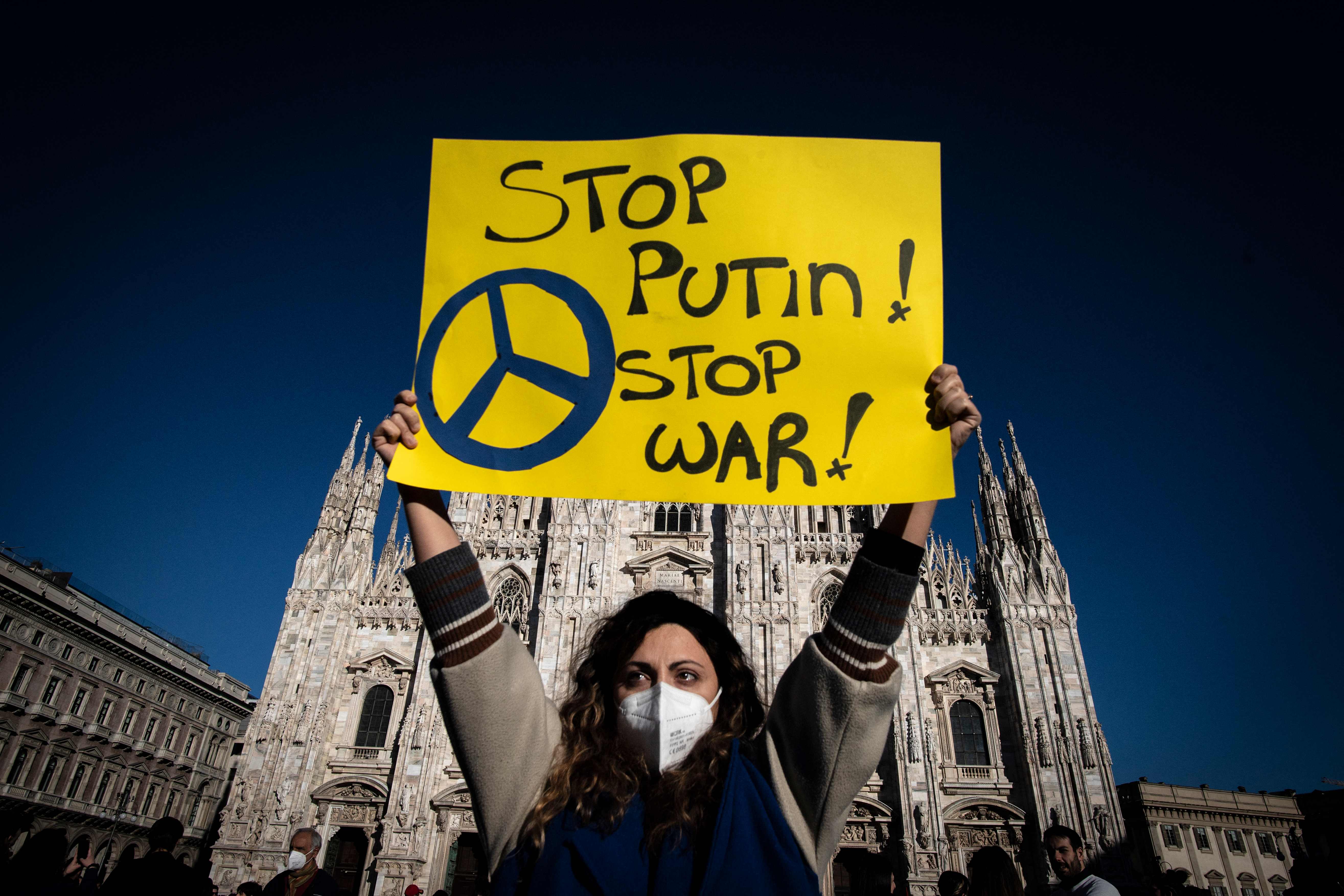'Get the hell out': Wave of anti-Russian sentiment in Europe
Sign up now: Get ST's newsletters delivered to your inbox

A lot of vitriol across the world about the invasion has focused on Russian President Vladimir Putin, but ordinary Russians living abroad have also become targets.
PHOTO: AFP
Follow topic:
WARSAW (AFP) - Since Russian tanks rolled into Ukraine last month, "Skamiejka", a popular Russian restaurant in the Polish capital Warsaw has been flooded with hate emails and online posts with gruesome images.
Anonymous phone calls have told the staff - most of whom are in fact Ukrainian - to "get the hell out" of Poland.
Tamara Rochminska, its owner, has shown solidarity with Ukraine by posting its flag on the restaurant's Facebook page, imploring users to stop targeting its staff.
"Please remember that Russia and Russians are not the same as Putin and his imperialist designs," Rochminska, who has lived in Poland for the last four decades, said in the post.
A lot of the vitriol at protests across the world has indeed focused on President Vladimir Putin, who gave the order for Russia's assault.
But sometimes ordinary Russians living abroad have become the targets.
In Germany, the windows of a shop selling Russian wares were vandalised, a restaurant refused to serve clients with Russian passports and a doctor refused to treat Russian patients.
Social media posts dripping in sarcasm urged Russians to "flee Germany" adding that the "integration of Russians is not possible, except in the Gulag Archipelago", referring to the system of Stalinist-era forced labour camps where millions of prisoners perished.
'Neighbours attacking neighbours'
Kremlin spokesman Dmitry Peskov on Friday (March 11) said there was "a growing atmosphere of hatred against Russians in several Western countries".
"It's very dangerous. Our fellow citizens have to be on the alert and vigilant," he said.
In the Czech Republic, media have reported cases of Russian pupils being insulted in primary and secondary schools.
These cases prompted Czech Interior Minister Vit Rakusan to state that Russians "often live here because they don't agree with Putin's regime and they should not be victims of any aggression".

A young demonstrator, face painted in the colours of the Ukrainian flag, holds up a placard at an anti-war protest in London.
PHOTO: AFP
In Britain, home to an array of Russian oligarchs, Conservative MP Roger Gale, suggested every Russian living there should be expelled and "sent home".
Tensions are also rising in the three Baltic states and Georgia, which all have large Russian-speaking minorities dating in part from the Soviet era.
During a visit this week by Lithuanian Interior Minister Agne Bilotaite to meet the Russian community in the port of Klaipeda, an Orthodox priest told her that his flock, especially older people who do not speak Lithuanian, "were afraid".
"Neighbours have started attacking neighbours, it's horrible," he said.
Bilotaite responded by insisting that hate towards the Russian community would not be tolerated.
In Georgia, real estate agents are asking the nationality of potential tenants.
One recent vacancy announcement stated: "This flat is not to be let to aggressors. No Russians or Belarusians."
In Slovakia, a large World War II memorial in the capital Bratislava honouring Soviet Red Army soldiers was painted blue and yellow, the colours of the Ukrainian flag.
The Russian embassy denounced the "act of vandalism", while the Slovak foreign ministry said Slovak citizens had just used the gesture to urge an end to "this absurd war".

